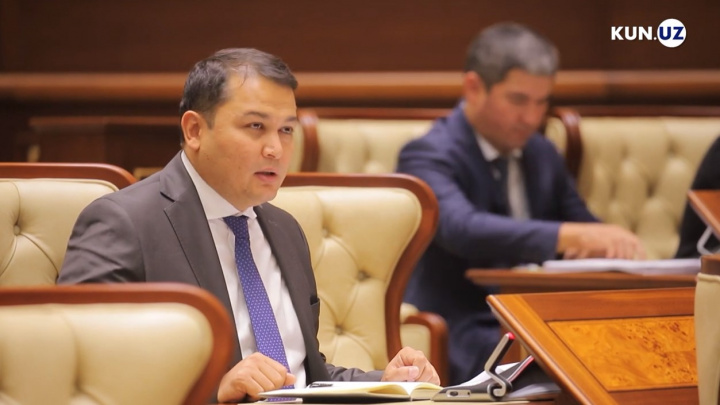“Countries that borrow in national currency are at less risk” – Otabek Nazirov
On June 17, the Financial Times published an article entitled “Emerging markets can use quantitative easing, too”. The article drew attention to the fact that not only developed countries but also developing countries now benefit from quantitative easing in stimulating their economies. This can be seen in the experience of such developing countries as Croatia, Poland, Romania, Chile and Indonesia, which have supported this policy since the beginning of the year and effectively addressed the pandemic.
- Quantitative easing (QE) is a form of unconventional monetary policy in which a central bank purchases longer-term securities from the open market in order to increase the money supply and encourage lending and investment. Buying these securities adds new money to the economy, and also serves to lower interest rates by bidding up fixed-income securities. It also expands the central bank's balance sheet.
Otabek Nazirov, director of the Capital Market Development Agency of Uzbekistan, commented on the possibility of using this instrument in Uzbekistan’s monetary policy.

“The circumstances described in the Financial Times article have a pragmatic significance for Uzbekistan, which is beneficial for both Uzbek monetary policy and the stock exchange. This issue is relevant in the local context; it shows the need to accelerate the issuance of corporate bonds and, above all, the liberalization and development of the government securities market.
I think that such a financial instrument is very relevant for Uzbekistan in terms of the possibility of making transactions in the primary market of state and corporate bonds.
Obviously, in order to support the economy, local capital markets and finance budget deficits, we can also apply the QE policy (quantitative easing), in which the Central Bank buys bonds issued by the government (Ministry of Finance),” said the head of the agency.
It was noted that the development of the regulatory framework by the Capital Market Development Agency had partially solved the legislative problems. On June 19, the Senate of Oliy Majlis approved amendments to the legislation of securities market that would facilitate this process through granting the right to issue bonds to corporate Private limited companies (the number of Joint Stock Companies is 600, the number of Private limited companies is over 140,000).
“As requirements for bond issuance has significantly decreased, limited companies have new possibilities to attract external financing, and now the issuance of corporate bonds can become an alternative to traditional bank loans,” the agency says.
Continuing on, the Financial Times argues that it is risky to apply quantitative easing for countries with high external debt.
“For the countries that carried out necessary complex work to create domestic money market and gain confidence in monetary and fiscal authorities, this can become a useful tool for stimulating the economy in the absence of other options.”
Thus, the director of the agency assesses the situation in Uzbekistan as moderate, as the country is working to increase the monetary gold exchange reserve. At the same time, the Financial Times emphasizes the need to maintain a balance between reserves and foreign currency borrowing from international financial institutions. Otabek Nazirov also confirmed this.
“The controversial policy of minting money is dangerous for countries that borrow from foreign investors in foreign currency and try to preserve their trust,” he said.
For reference: According to the Central Bank, Uzbekistan’s international reserves as of June 1 amounted to $31.3 billion (58.1% of GDP), and as of April 1, gross foreign debt amounted to $25.1 billion (46.6% of GDP).
According to the Financial Times, support for local investors is to convince them that government debt will not increase. This is a key criterion for the application of quantitative easing in developing countries. This affects investment offers in the domestic market.
“If investors withdraw local currency, in countries affected by external shocks, the situation may get complicated, and if they borrow foreign currency, it will further complicate the situation,” said the head of the agency.
Otabek Nazirov noted that given the current external debt situation and the state of macroeconomic stability, such considerations were also relevant to the Uzbek economy.
Foreign currency debt has doubled over the past five years. I believe that it is appropriate to draw on the potential of the internal reserve, as there is sufficient reserve to support the local financial market. There is no need to abandon external debts, but it is better to attract them in the national currency and, if possible, directly from the business entities,” he said.
At the same time, the director of the agency explains that countries that borrow in foreign currency may suffer in the future, and the Financial Times drew attention to the same aspect.








